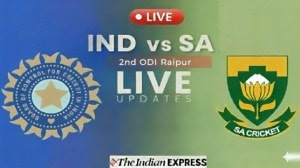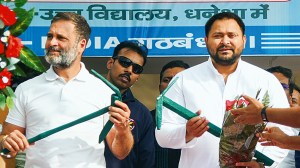Supreme Court likely to hear petitions challenging Online Gaming Act on October 7
The case has been listed before a bench comprising Justices JB Pardiwala and KV Viswanathan.
 The law imposes a blanket ban on offering, operation, facilitation, advertisement, promotion, and participation in online money games. (Representational)
The law imposes a blanket ban on offering, operation, facilitation, advertisement, promotion, and participation in online money games. (Representational)The Supreme Court is likely to hear petitions challenging the Promotion and Regulation of Online Gaming Act, 2025, on October 7.
The case has been listed before a bench comprising Justices JB Pardiwala and KV Viswanathan.
On September 8, the Centre had moved a plea seeking transfer of three cases pending before the Delhi, Karnataka and Madhya Pradesh High Courts. The Union government had asked for this consolidation, saying that the issues raised in the different petitions were virtually identical and could be resolved at one place. Its reasoning was that conflicting rulings from different benches would create confusion, while a single authoritative judgment could settle the law once and for all.
The law imposes a blanket ban on offering, operation, facilitation, advertisement, promotion, and participation in online money games. It, however, allows “e-sports”, which are online games played as part of multi-sport events, involving organised competitive competitions between individuals or teams. The law prescribes an imprisonment of up to three years and a penalty of Rs 1 crore for any person offering online games in India. Those promoting such platforms, such as social media influencers, will also face jail time of two years and a penalty of Rs 50 lakh. The government will also prohibit banks and financial institutions from facilitating financial transactions on such platforms.
The Court will now address four broad issues. These range from whether the Parliament even had the legislative competence to pass the Act, which is a state subject, the lack of distinction between games of skill and games of chance is reasonable and passes the test of Articles 14 and 19, to whether the total prohibition, backed by severe criminal penalties, meets the test of proportionality under Article 21.
- 01
- 02
- 03
- 04
- 05































